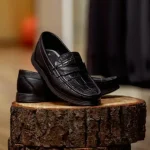Ireland is a country known for its stunning landscapes, historic castles, and warm, friendly people. However, if you’re visiting for the first time, there’s one aspect of Irish culture that may catch you off guard: the language.
While English is spoken throughout the country, the Irish have their own way of using it, complete with unique dialects, pronunciations, and idiomatic expressions.
To make the most of your visit and feel more connected to the locals, it’s helpful to familiarize yourself with some key aspects of Irish dialects and common phrases.
Also Read
Adjusting to the Irish Accent
The first challenge many visitors face is understanding the Irish accent. If you’re accustomed to North American or standard British English, Irish speech can be a bit of an adjustment.
The country is home to a variety of regional dialects, each with its own quirks in pronunciation and tone. For example:
- In some areas, “kite” might sound like “koyt,” “about” can be pronounced as “a boat,” and “mouth” may come across as “maith” or even “moyth.”
- The pace of speech is often quick, with words blending together. This can make conversations sound like a flurry of sounds, especially in areas with thicker regional accents.
- Even native Irish speakers can sometimes struggle to understand accents from other parts of the country, so don’t be surprised if you find it tricky at first.
To get used to the accent, try listening to Irish radio stations, podcasts, or TV shows before your trip. This will help your ears become familiar with the tone and cadence of the language.
Common Irish Phrases and Sayings
Once you start to get used to the accent, the next step is understanding some of the unique phrases and idioms that are part of everyday Irish speech. Here are a few examples:
- “Sure look it”: A phrase that signals acceptance or a relaxed attitude, similar to saying “It is what it is.”
- “Whale of a time”: This means having a fantastic time or enjoying oneself immensely.
- “Who all’s there”: A way of asking who is present in a group or at an event.
- “Grand”: A versatile word that means “fine” or “okay.” If you ask how someone is doing, they might respond with, “I’m grand,” meaning they are doing well.
Everyday Words with Different Meanings
Some words in Irish English have different meanings or are used in ways that may not be familiar to visitors. Here are a few examples:
- “Boot”: This refers to the trunk of a car. If someone says, “Put your bags in the boot,” they mean the rear storage compartment.
- “The jacks”: A term for the bathroom or restroom.
- “The guards”: The colloquial name for the police force in Ireland.
- “Petrol” or “diesel”: What North Americans refer to as “gasoline.”
These terms are commonly used and will come in handy as you navigate conversations during your trip.
Navigating Regional Dialects
Ireland’s dialects can differ greatly depending on where you are. A trip to Dublin may present a different set of challenges compared to a visit to rural Donegal or the southern counties of Cork and Kerry.
Some regions are known for their melodic and lilting accents, while others may have a more clipped and faster style of speaking.
- Dublin: The capital’s accent is typically more straightforward for visitors to understand, especially if you’re in the city center.
- Cork: Known for its sing-song quality, the Cork accent can be charming but challenging to decipher for first-timers.
- Donegal: This northern region has an accent that is heavily influenced by Irish Gaelic, which can make it sound quite distinct.
Tips for First-Time Visitors
- Practice Active Listening: Pay attention to context and body language to help you interpret what is being said, especially when faced with unfamiliar phrases or quick speech.
- Ask for Clarification: Don’t hesitate to ask someone to repeat or explain something. The Irish are known for their friendliness and are usually happy to help.
- Learn a Few Basics: Familiarize yourself with some common Irish expressions and phrases before you arrive. A simple phrase book or a travel app can be a handy resource.
Visiting Ireland for the first time is an unforgettable experience, filled with beautiful scenery, rich history, and warm hospitality. However, understanding the local dialects and phrases can make your trip even more enjoyable.
By preparing yourself for the accents, learning a few key phrases, and keeping an open mind, you’ll be better equipped to navigate conversations and fully embrace the Irish way of speaking.
So pack your bags, brush up on your Irish lingo, and get ready for an adventure full of culture and conversation!






















